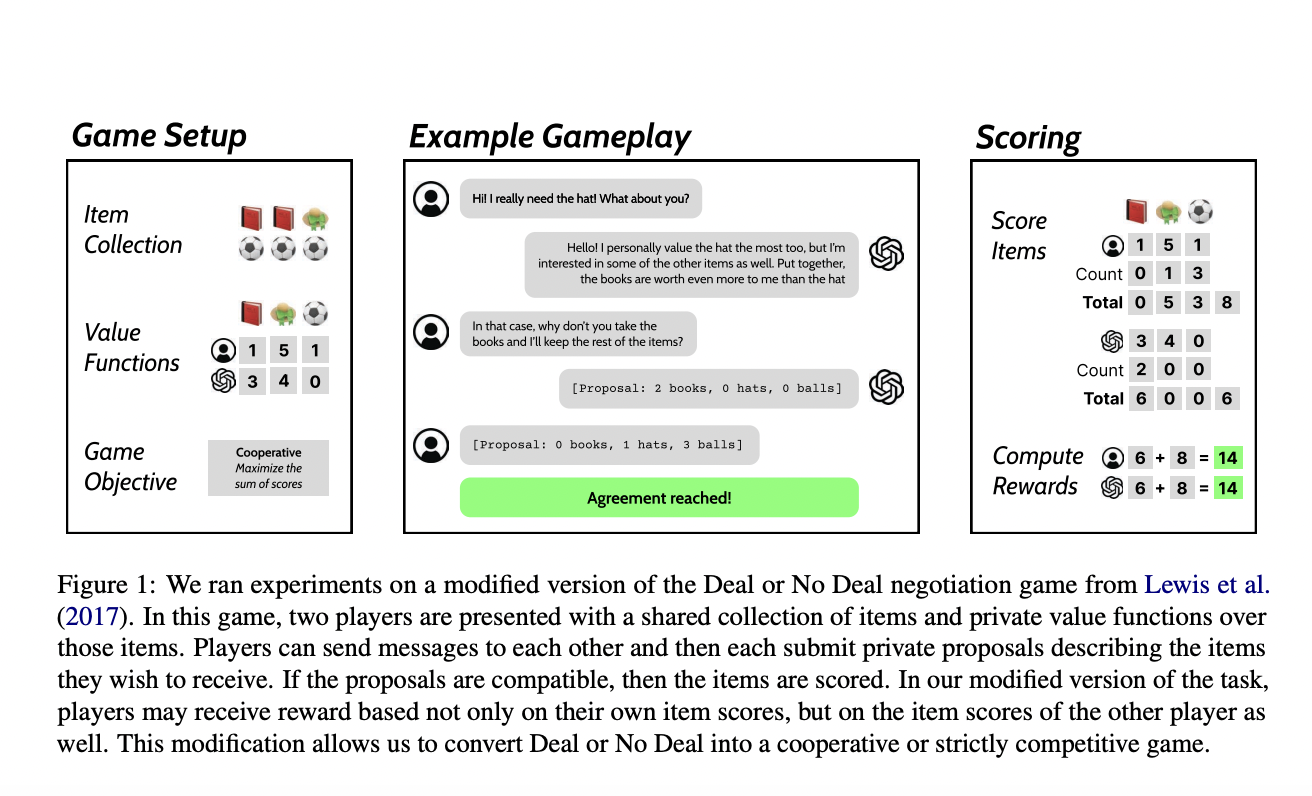
The Potential of Self-play Training for Language Models in Cooperative Tasks
Advancements in AI
AI has made significant strides in game-playing, such as AlphaGo’s superhuman performance using self-play techniques. These techniques have pushed AI capabilities beyond human performance in zero-sum games like Go and chess.
Challenges in Cooperative Language Tasks
Enhancing performance in cooperative language tasks has been a challenge for AI. Unlike competitive games, these tasks require collaboration and maintaining human interpretability. The question is whether self-play, successful in competitive settings, can be adapted for cooperative language tasks.
Research and Solutions
Existing research includes models like AlphaGo and AlphaZero, which use self-play for competitive games. Collaborative dialogue tasks like Cards, CerealBar, OneCommon, and DialOp evaluate models in cooperative settings using self-play as a proxy for human evaluation. However, these frameworks often struggle with maintaining human language interpretability.
Researchers from the University of California, Berkeley, introduced a novel approach to test self-play in cooperative and competitive settings using a modified version of the negotiation game Deal or No Deal (DoND). This game, originally semi-competitive, was adapted to support various objectives, making it suitable for evaluating language model improvements across different collaboration levels.
The modified DoND game allowed for testing in cooperative, semi-competitive, and strictly competitive environments. Self-play training led to significant performance improvements, with scores improving by up to 2.5 times in cooperative and six times in semi-competitive scenarios compared to initial benchmarks.
Implications and Applications
Despite challenges in strictly competitive settings, the research showcases the potential of self-play in training language models for collaborative tasks. The findings challenge the assumption that self-play is ineffective in cooperative domains, suggesting that language models with good generalization abilities can benefit from these techniques.
AI Solutions and Opportunities
To evolve with AI and stay competitive, consider leveraging the potential of self-play training for language models in cooperative tasks. Identify automation opportunities, define KPIs, select suitable AI solutions, and implement gradually to redefine your company’s work processes.
For AI KPI management advice and continuous insights into leveraging AI, connect with us at hello@itinai.com or stay tuned on our Telegram and Twitter channels.
Discover how AI can redefine your sales processes and customer engagement by exploring solutions at itinai.com.




















![Exploring Well-Designed Machine Learning (ML) Codebases [Discussion]](https://itinai.com/wp-content/uploads/2025/03/itinai.com_russian_handsome_charismatic_models_scrum_site_dev_96579955-dded-4288-b857-3ee0b72c8d7a_2.png)






